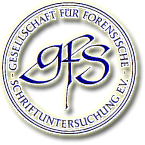



Specialist criteria for ordinary membership
Guideline 2.01
(modified by resolution passed at the annual general meeting in 1998)
Preface
In accordance with the society's goals as defined in its bylaws, the acknowledged criteria for public appointment (chambers of industry and commerce) or certification (European standards), the status of an expert for the forensic examination of handwriting (GFS) should provide external and internal proof of the fact that he possesses the specific scientific qualifications for this discipline and is authorized to provide suitable expert testimony as an expert witness before court. Among other things, this presupposes that the expert complies with the necessary general and special requirements and undertakes to contribute to the furtherance of this discipline both in the area of research and in practical application by means of regular study of the relevant literature and by taking part in suitable further training.
In addition to subject-related skills, the expert should be able to demonstrate that he possesses knowledge in the following areas:
· Civil and criminal court procedures to the extent that this concerns the expert's activities.
· Statutory stipulations and other public rules for the appointment, retention and deployment of the expert and the rendering of his reports as well as his rights, obligations and liability.
· Basis for and structure of reports, rendering of and explanations for reports.
· Detection of errors in the form and content of reports and steps to check these.
· Examinations in related forensic areas and case-by-case possibilities for joint activities (particularly, examination of documents, examination of technically produced writing, linguistics).
· Techniques for the systematic study of literature and methodical requirements for understanding specialist literature and for performing independent examinations.
· Invoicing of expenses, remuneration for expert.
Special requirements with respect to the examination of handwriting
The expert for handwriting examinations is qualified to render reports on all kinds of handwritten documents to determine their authenticity, to identity the writer and to assess the conditions under which the documents arose as expert testimony before courts of law. This particularly requires detailed knowledge of the following subsegments of the discipline:
· Purpose and methodical principles of forensic examinations of handwriting and delineation from other disciplines related to handwriting (particularly graphology).
· Axioms and premises underlying the handwriting comparisons.
· Psycho-physiological and anatomical underpinnings of handwriting.
· Effect of schooling, learning how to write and technical conditions on handwriting.
· Development of individual handwriting, its relative intraindividual stability and interindividual variability.
· Foreign writing systems and school writing systems.
· Age-related and pathological changes in handwriting.
· Effect of other internal and external variations on handwriting.
· Types of writing aids and their impact on handwriting.
· Techniques for falsifying handwriting and methods of detecting falsifications.
· Optical and other physical/technical methods of examining documents (GFS guideline 1.01).
· Requirements of the writing material and information required to determine related facts of relevance for examinations of handwriting.
· Principles and problems in connection with examining non-originals.
· Acknowledged systems for identifying metrical and non-metrical graphic variables.
· Particular problems and methods for identifying handwriting in the case of deliberately concealed handwriting styles.
· Approaches and methods for computer-aided examinations and comparisons of handwriting.
Bibliography
The following monographs, collections and individual publications are particularly useful for an independent study of the specialist literature:
Literature on general requirements
Bayerlein, W (Hrsg.). (1990). Praxishandbuch Sachverständigenrecht. München: Beck. (BRD)
Bleutge. P. (1992). Gesetz über die Entschädigung von Zeugen und Sachverständigen. Kommentar. 2. Auflage. Essen: Verlag für Wirtschaft und Verwaltung. Hubert Wingen. (BRD)
Bortz, J. & Döring, N. (1995). Forschungsmethoden und Evaluation. 2. Auflage.Berlin: Springer.
Jessnitzer, K., fortgeführt von Frieling, G. (1992). Der gerichtliche Sachverständige. Ein Handbuch für die Praxis. 10. neu bearbeitete Auflage. Köln: Heymanns. (BRD)
Kube, E., Störzer, H.U. & Timm, K.J. Hrsg. (1992 u. 1994). Kriminalistik. Handbuch für Praxis und Wisschenschaft, Band I u. II Stuttgart: Boorberg.
Basic literature on the examination of handwriting
Conrad, W .u. Stier, B. (Hrsg.) (1989): Grundlagen, Methoden und Ergebnisse der Forensischen Schriftuntersuchung, 213 - 245. Lübeck: Schmidt-Römhild.
Ellen, D. M. (1992): The scientific examination of documents. Methods and techniques. Chichester: Ellis Horwood.
Hecker, M. R. (1993): Forensische Handschriftenuntersuchung. Heidelberg: Kriminalistik Verlag.
Hilton, 0. (1982): Scientific Examination of Questioned Documents. New York: Elsevier.
Michel, L. (1982): Gerichtliche Schriftvergleichung. Berlin: de Gruyter.
Pfanne, H. (1954): Die Schriftexpertise und ihre Bedeutung für die Rechtsprechung. Rudolstadt: Greifenverlag.
Pfanne, H. (1971): Handschriftenvergleichung für Juristen und Kriminalisten. Lübeck: Schmidt-Römhild.
Teulings, H.-J. (1994): Bewegungssteuerung beim Schreiben. In H. Heuer & S. W Kehle (Hrsg.): Enzyklopädie der Psychologie, Themenbereich C, Serie 11, Band 3: Psychomotorik (S. 703-772). Göttingen: Hogrefe.
Wildt, M. (1990): Pathologische Veränderungen der Handschrift. Diss. Mannheim: Eigenverlag.












